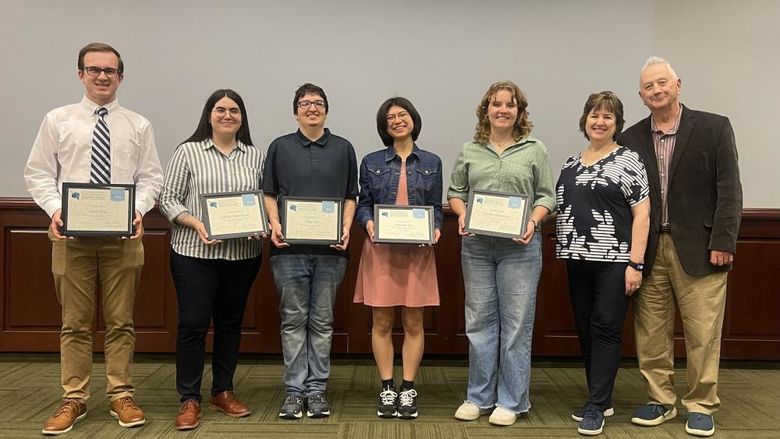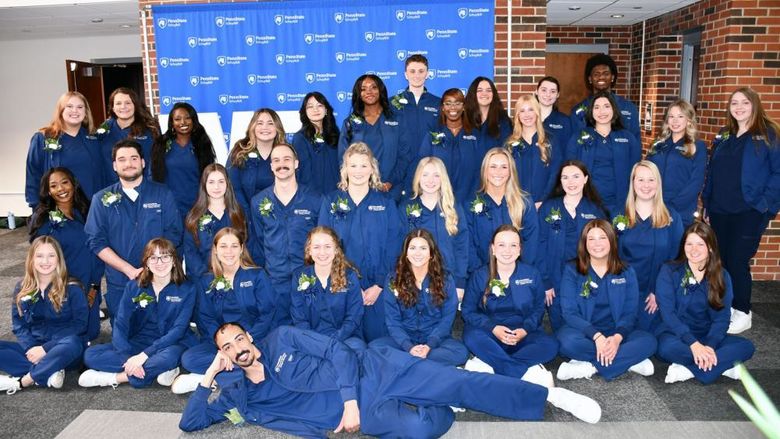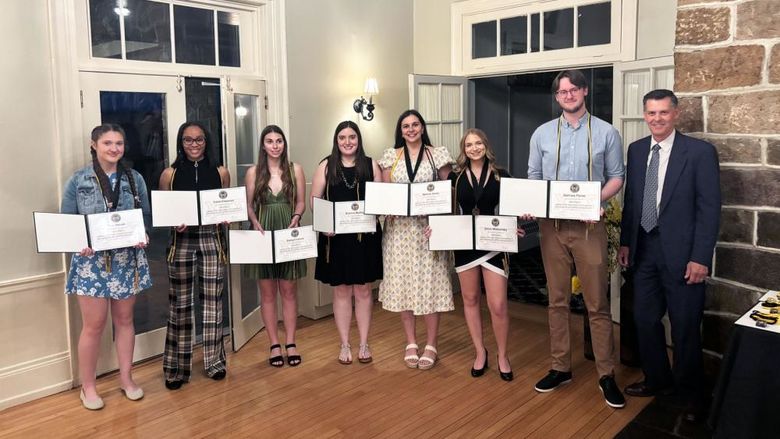Staff members at Penn State Schuylkill, Instructional Designer Julie Meyer (left) and Lab Supervisor Andrea Solinski (right), accept a certificate and gift basket with student Mahasin Mitchell (center) from Master Gardner Susan Hyland.
SCHUYLKILL HAVEN, Pa. — The community garden at Penn State Schuylkill recently received its certification from the Penn State Extension Master Gardeners as a Pollinator Friendly Garden.
Pollinator gardens foster pollinator growth and sustainability by providing food and shelter for common pollinators like bees, hummingbirds, bats and butterflies. According to the U.S. Department of Agriculture, these creatures provide a crucial ecological function: they help pollinate plants that provide some of the globe’s most favorite produce. A portion of the garden has been devoted to promoting and taking action to help the pollinators and the hope is that this promotes pollinator health and helps with the fertilization of other plots in the community garden.
In order for a garden to become certified pollinator friendly, gardeners must first provide potential pollinators with the proper food, water and shelter. The next step is a bit more labor-intensive because it requires gardeners to recognize and remove invasive plants and replace them with native ones. The final step requires that all gardens reduce the amount of pesticide use, which means finding safer alternatives and investing more labor into keeping the garden pest- and weed-free.
Once the campus gardeners completed all of the certification requirements, Penn State Extension Office representative and Penn State Master Gardener Susan Hyland presented them with a certificate and gift basket containing pollinator garden friendly items such as plants, seeds and pollinator nesters.
A manual was developed by the campus gardeners to educate the community about the current plant life and proper care and maintenance of the garden. It is available for public use at the campus library’s circulation desk.
The community garden at Penn State Schuylkill was developed with funding received in February 2014 from the Sustainability Institute, the Office of the Vice President for Commonwealth Campuses, and the Campus Research and Scholarship Award from the Schuylkill Campus Advisory Board. The garden was developed as part of the campus sustainability program, "Envision, Plan, Implement, Change, Sustain," and is available for the campus and public use.





